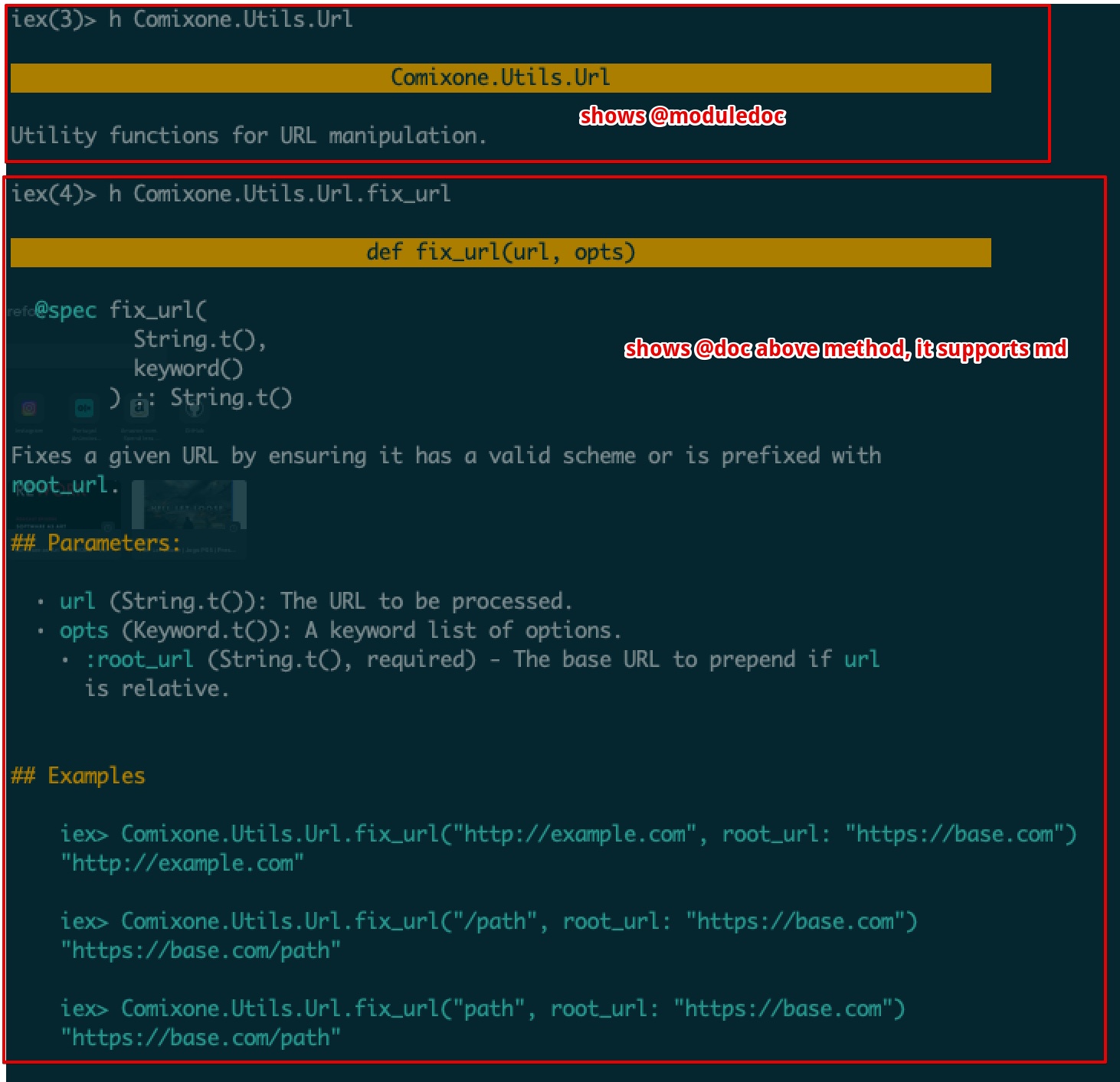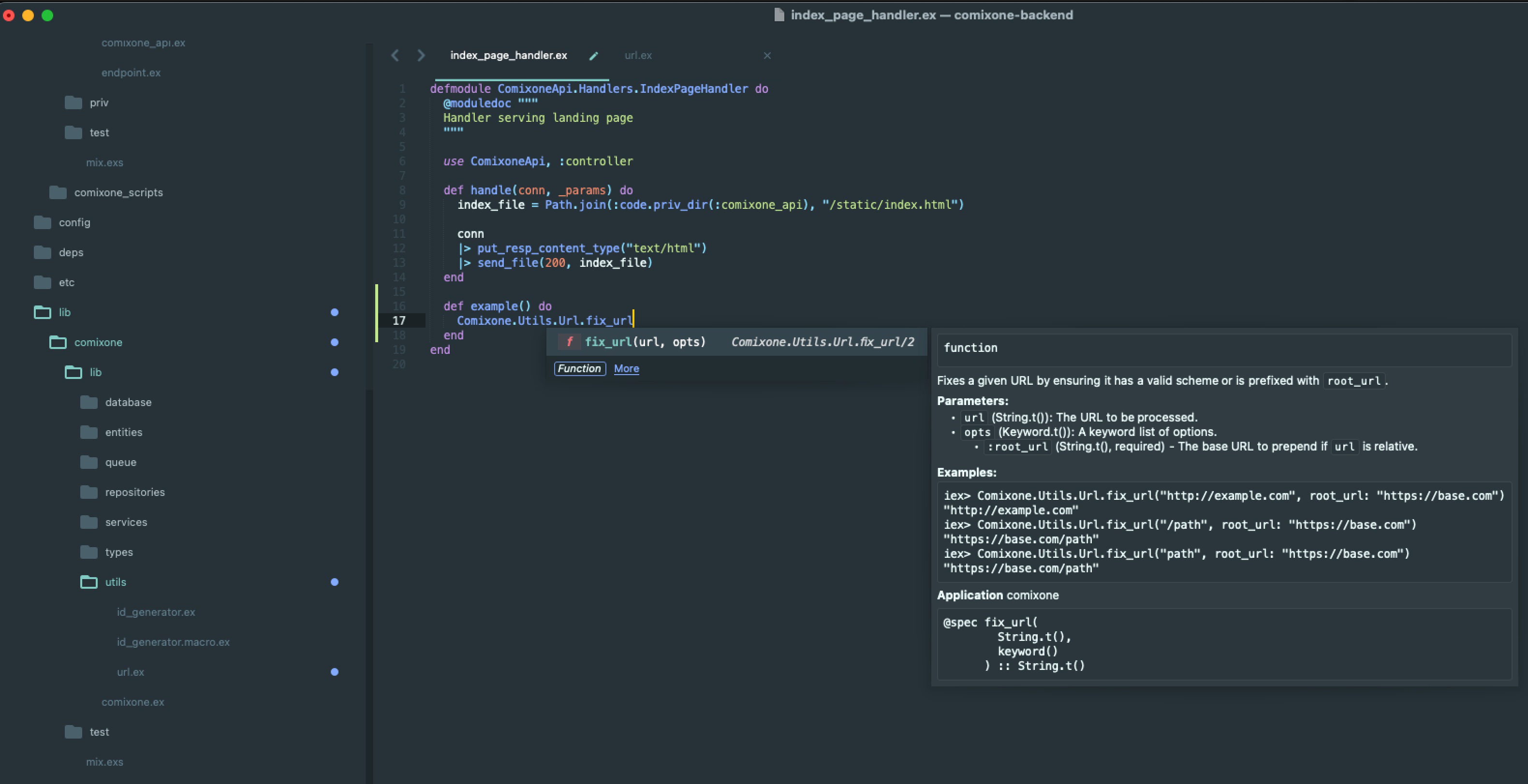Document it!
It will pay back.
Documenting modules and methods in Elixir (or any language, really) isn’t just about making your code look professional — it has very real, practical benefits for you, your team, and even your future self.
Documentation serves as a contract for how a function should behave.
When working in a team, people don’t need to guess about the inputs/outputs, side effects, or error conditions.
Saves time in code reviews — reviewers can focus on how well something is implemented, not what it even does.
🍳 Recipe 6: Documentation and Specs
defmodule LoggerUtils do
@moduledoc "Helper functions for logging"
@doc "Prints a formatted debug message"
def debug(msg), do: IO.puts("[DEBUG] #{msg}")
end
📝 Use @moduledoc and @doc to self-document your code.
Works great with h in IEx:
iex> h LoggerUtils.debug
💡 Pro Tip: If your module is a library - good docs are your “user interface”, developers will prefer well-documented libraries, even if competitors have slightly more features.

🔥 Real-world example
defmodule Comixone.Utils.Url do
@moduledoc """
Utility functions for URL manipulation.
"""
@doc """
Fixes a given URL by ensuring it has a valid scheme or is prefixed with `root_url`.
## Parameters:
- `url` (String.t()): The URL to be processed.
- `opts` (Keyword.t()): A keyword list of options.
- `:root_url` (String.t(), required) - The base URL to prepend if `url` is relative.
## Examples
iex> Comixone.Utils.Url.fix_url("http://example.com", root_url: "https://base.com")
"http://example.com"
iex> Comixone.Utils.Url.fix_url("/path", root_url: "https://base.com")
"https://base.com/path"
iex> Comixone.Utils.Url.fix_url("path", root_url: "https://base.com")
"https://base.com/path"
"""
@spec fix_url(String.t(), keyword()) :: String.t()
def fix_url("http://" <> _ = url, _opts), do: url
def fix_url("https://" <> _ = url, _opts), do: url
def fix_url(url, opts) do
root_url = Keyword.fetch!(opts, :root_url)
root_url <> ensure_leading_slash(url)
end
@doc """
Ensures the given URL starts with a leading `/`.
## Parameters:
- `url` (String.t()): The URL or path to modify.
## Examples
iex> Comixone.Utils.Url.ensure_leading_slash("/path")
"/path"
iex> Comixone.Utils.Url.ensure_leading_slash("path")
"/path"
"""
@spec ensure_leading_slash(String.t()) :: String.t()
defp ensure_leading_slash("/" <> _ = url), do: url
defp ensure_leading_slash(url), do: "/" <> url
end

